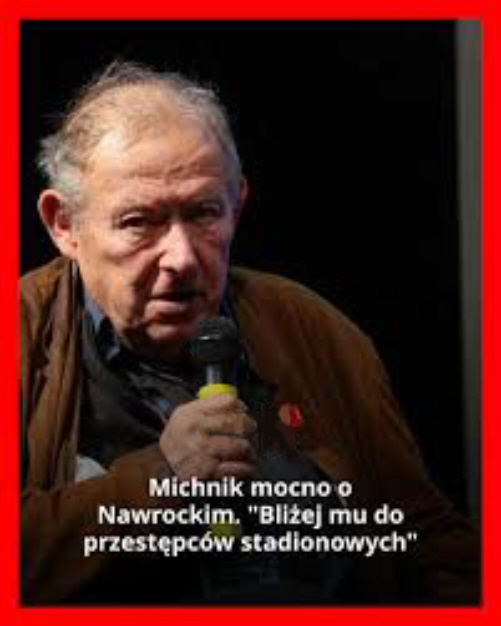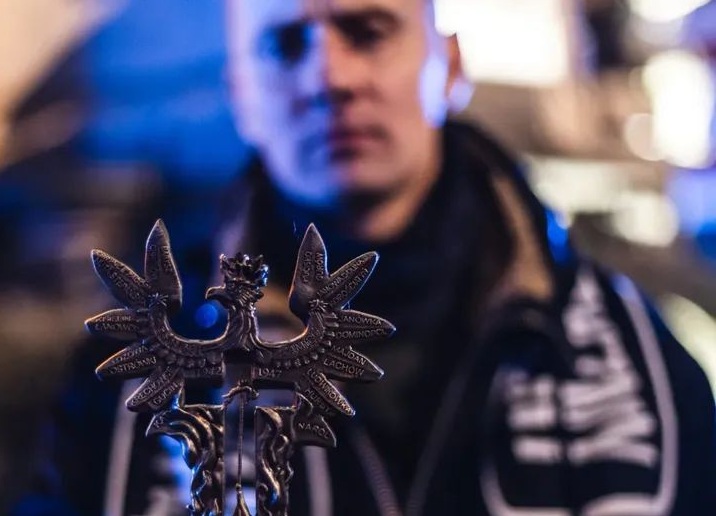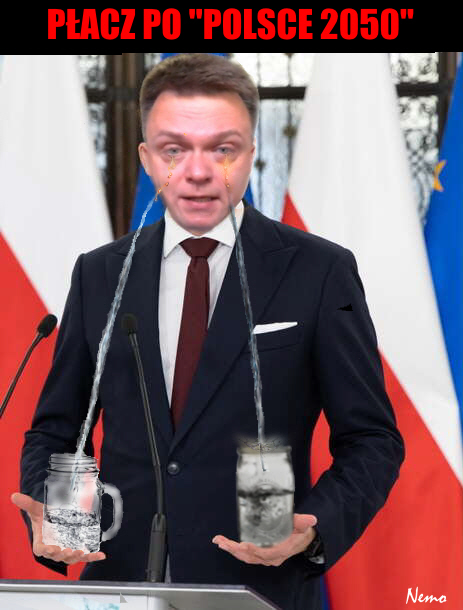At a time erstwhile public debate drowns in euphemisms, and mainstream politicians run distant from hard subjects, 1 conviction can cut the atmosphere of understatements like razors.
This is how Sam Van Rooy, 1 of Vlaams Belang's leading politicians, worked:
“Whoever brings Afghanistan will become Afghanistan himself.”
It was not a random slogan from the rally or a catch of words to shake – it was a message. And that's the 1 they heard. Van Rooy has for years warned against the consequences of uncontrolled migration and failed integration. But only this message made the media – even though they tried to ignore it or laughter at it – gotta react. due to the fact that it's not just provocation. This is simply a summary of the concern that is increasing not only in Belgium, but throughout Western Europe.
Van Rooy's words came a fewer days ago in consequence to further reports of violent assaults and riots involving young men of Afghan and Somali origin in Antwerp and Brussels. The conviction sounded strong, harsh, but besides clear. It wasn't about geography. It was about the social model, mentality and values that Van Rooy believed were spilling around Belgian cities, displacing local identity and security.
Left-wing media reacted immediately. “Rasism”, “speak of hatred”, “islamophobia” – this is only part of the terms that have died. The centre politicians reacted coolly, any of them kept quiet, others tried to reduce the importance of the speech. But it was not without hypocrisy – due to the fact that many of them, especially in the N-VA, present repeat thesis, which was attributed only to the "extremists" of VB a fewer years ago. Meanwhile, Van Rooy's quote spread across social media. He gained massive resonance among voters. It was on banners, memes, T-shirts. For some, it was the boundary behind which radicalism begins. For others – he was an expression of courage and sober diagnosis.
The crucial thing is that the message did not fall into vacuum. Its strength comes from the context – from social frustration, from real problems and from an expanding sense that "something is wrong", and no of the establishment has the courage to say it out loud. Van Rooy said. And he did. Sam Van Rooy is not a lone wolf in the party. His strong rhetoric is reflected in the statements of another Vlaams Belang leaders. Francesca Van Belleghem, a associate active in asylum policy, says:
"The asylum centres have become a profitable industry."
In her opinion, the asylum strategy no longer serves protection but attraction – and the Belgian State acts as a magnet for people from all over the world, offering privileges without requirements.
Party leader, Tom Van Grieken, focuses on social costs:
"The most costly asylum strategy in Europe and safety lower than ever. This is not an accident – this is the consequence of politics.”
VB cites data: 3,269 asylum applications in July 2025, over a billion euros per year to keep the system, 91% of criminal cases involving foreigners end in deficiency of deportation. For VB politicians, it proves that the state has abdicated.
Chris Janssens, VB leader in the Flemish Parliament, develops the idea:
"cultural self-defense".
In his opinion, Belgium, especially Flanders, cannot be an open frontier for anyone who rejects the principles of Western civilization.
“Integration is simply a fiction if there are no common values.”
All these statements combine the common denominator: immigration is not a logistical challenge but an existential one. VB doesn't want compromises. Vhce the fresh migration doctrine: closure of borders, withdrawal of social privileges, effective deportations and precedence for citizens. It is the consistency and consistency of this message that makes the organization no longer treated as a "protest". He becomes a real actor of political change. And its message – although inactive controversial for many – is increasingly hard to ignore.
What Vlaams Belang is and where he gets his strength?
Vlaams Belang (from Dutch: ‘Flamand Interest’) is simply a organization born of political, cultural and legal conflict. Her predecessor, Vlaams Blok, was disbanded in 2004 after a court ruling that found the party's activities discriminatory. Belang was created on the rubble of the Block – a fresh structure, but with old determination: to fight for Flanders' independency and defend Flemish identity. Since its inception, VB has put 3 pillars: Flanders' independence, tough immigration policy and interior security. Although for years he was marginalized by the so-called. Cordon sanitaire – a conspiracy of strategy parties not to enter into coalitions with him – VB consistently built an election base. It pays off today.
In 2025, the organization has 20 seats in the national home of Representatives, 23 seats in the Flemish Parliament, and has an endorsement of 18–22% nationally (or even more in Flanders). From an adversary mocked, she became a force to be reckoned with. Her direct, emotion-based, but besides fact-based kind of communication goes to voters who have had adequate political appearances. It's not just an anti-immigration party. This is simply a organization that convinces that Belgium, as the older Flemish knew it, is disappearing. And that individual has to halt it before it's besides late.
The fresh Flemish Alliance (N-VA) is VB's biggest rival. He has been considered a conservative and nationalist organization for years, but he plays 2 fronts on migration. On the 1 hand, he stresses the request for control and integration, on the another hand, he avoids harsh wording, not wanting to alienate average voters and coalition partners. VB uses this hesitation. Tom Van Grieken frequently mentions N-VA "empty declarations", deficiency of political courage and opportunisticism. Francesca Van Belleghem says,
‘The difference between us and N-VA? We have a plan. They have a narrative.”
For many voters, N-VA is simply a organization that wants to be tough, but it works softly. Vlaams Belang not only speaks, but offers solutions. That is why it is beginning to take over voters tired of compromises – and not only from the right side of the political scene.
The popularity of Vlaams Belang is not a consequence of one-time provocation. This is an answer to circumstantial social needs. Many Belgians, especially those outside the metropolis, feel that they no longer have any influence on what is happening in their own country. The increasing sense of danger, the more hard access to housing, problems in schools, queues to doctors – all this creates frustration that the political establishment ignores or marginalizes.
VB says to these people: ‘You are right to be angry’. And not only does he say it, but he explains where the problem comes from and what to do with it. Van Rooy, Van Grieken or Van Belleghem don't usage PR jargon. Their language is simple, sharp and clear. That's why they gain. They are politicians who are not trying to delight the elite, they are just saying what many think – but they are afraid to say out loud. For part of society, VB is simply a safety valve. For others – the last hope to halt changes that they feel as a fall of civilization. In both cases, the organization gets into emotion, but does not halt at them. Their message combines fear with concrete: data, reports, examples. And that's what makes them grow. due to the fact that erstwhile another politicians talk about “the challenges of diversity”, VB talks about violent realities. And people like brutal fact to beautiful lies.
The statements of VB politicians, although powerfully embedded in the Belgian context, are a broader European trend. The National Assembly of Marine Le Pen is increasing in France. In the Netherlands, Geert Wilders scores further, and in Germany, AfD begins to dominate the east of the country. The slogans on "defence of identity", "return of border control" and "zero tolerance for chaos" have ceased to be a margin.
Vlaams Belang does not work in isolation. He participates in global meetings of national-conservative parties, has allies in the European Parliament and lists strategies with groups from Central Europe. Their message – extremist from the point of view of the Brussels elite – in many countries becomes a fresh mainstream. The question is not “is it extremism?” but alternatively “is it the future?” erstwhile social frustration becomes a mass phenomenon and centr parties avoid taboo themes, those who are not afraid to say “enough” are left behind. VB is the trailer for this move.
The stronger VB's message becomes, the more tense its critics react. The mainstream media is trying to description Van Rooy's statements as extremism and the organization itself as a threat to democracy. Left-wing politicians call for "the work of words" and "a debate without hatred". The problem is that this debate has long been like a monologue – and VB interrupts it.
The downtown parties effort to copy any of Belang's postulates, but they cannot talk a language that understands the street. Their message is blurry and internally contradictory. Van Grieken says this:
“They want our words, but they do not want our courage.”
Social reactions are polarized. any protest, others cheer. any see a extremist in Van Rooy, others see the only 1 telling the truth. The division no longer follows a line of parties, but generations, classes and ways of looking at reality. And for many young men in the mediate and working class, VB sounds authentic today. VB no longer has to scream to be noticed. present it is the remainder of the political scene that shouts out – from fear that individual truly takes distant their microphone.










![A gdyby śmierci nie było? [o „Trzecim królestwie” Knausgårda]](https://krytykapolityczna.pl/wp-content/uploads/2025/07/Szablon-rozmiaru-obrazkow-na-strone-2.png)




